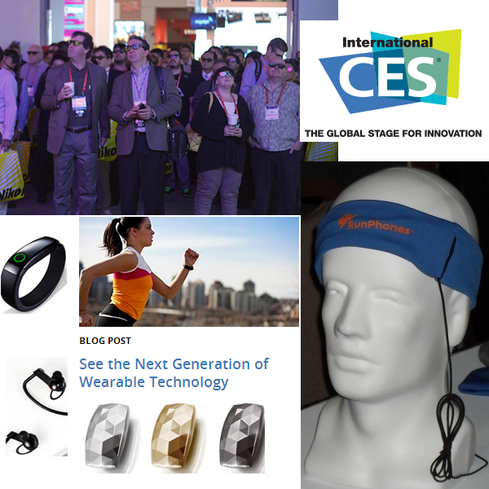Google Launches Android Wear Developer PreviewGoogle Launches Android Wear Developer Preview
Android developers can now adapt their apps to send information to forthcoming Android smartwatches.


10 Wearables To Watch At CES 2014
10 Wearables To Watch At CES 2014 (Click image for larger view and slideshow.)
Google on Tuesday introduced Android Wear, an extension of its Android mobile operating system for wearable devices.
Sundar Pichai, Google's SVP of Android, Chrome, and Apps said in a blog post that Google has only just begun to explore the possibilities of mobile technology. "That's why we're so excited about wearables -- they understand the context of the world around you, and you can interact with them simply and efficiently, with just a glance or a spoken word," he said.
Pichai said Google is starting with the most familiar wearable device: the watch. Google is not the first major company to enter the smartwatch market -- the Samsung Gear debuted last year to mediocre reviews and Sony has released similarly undistinguished models -- but it has managed to wade into the market before Apple introduces the smartwatch that it's widely expected to launch later this year.
[Is Android poised to rule the wearables market? Read Google Shoots For Wearables Dominance With SDK.]
The mobile revolution's shift toward wearables has long been anticipated. In 2012, Forrester analyst Sarah Rotman Epps predicted that wearable devices would intensify the platform wars and that Google might win. "Apple's iOS ecosystem has already inspired a host of wearable accessories, like the Lark sleep sensor and now-discontinued Jawbone UP. But Google's open Android platform will inspire broader experimentation for entire wearable solutions," she wrote. "Android is already the platform of choice for Foxconn-funded startup WIMM Labs as well as the Sony SmartWatch."
Google acquired WIMM Labs last year. Its interest in the wearable market is hardly a secret: Its high-profile Google Glass eyewear represents another type of wearable, and is a device without a social precedent.

As with its Android phones, Google is working with third-party hardware makers and technology partners to produce Android Wear devices. Pichai said to expect devices from Asus, HTC, LG, Motorola and Samsung later this year. Google is also working with chip makers Broadcom, Imagination, Intel, Mediatek, and Qualcomm, and with fashion brands such as the Fossil Group.
Android developers can now download the Android Wear Developer Preview, which allows developers to adapt their Android apps to format notifications, the primary mode of information presentation on small-screen devices, for Android Wear hardware.
The Developer Preview also includes voice input APIs, since talking beats typing as an input mode on smartwatches. A typical use case would be replying verbally to an email. Pichai noted that wearable users will be able to say "OK, Google" to call up a music playlist on a phone, or to cast a movie to a Google Cast-connected TV.
Expect Android Wear to make significant use of Google Now and Google's speech recognition technology.
Google says it will deliver a full Android Wear SDK, which will include a more complete set of APIs, later this year, possibly at the company's Google I/O developer conference in June.
Engage with Oracle president Mark Hurd, NFL CIO Michelle McKenna-Doyle, General Motors CIO Randy Mott, Box founder Aaron Levie, UPMC CIO Dan Drawbaugh, GE Power CIO Jim Fowler, and other leaders of the Digital Business movement at the information Conference and Elite 100 Awards Ceremony, to be held in conjunction with Interop in Las Vegas, March 31 to April 1, 2014. See the full agenda here.
About the Author
You May Also Like






